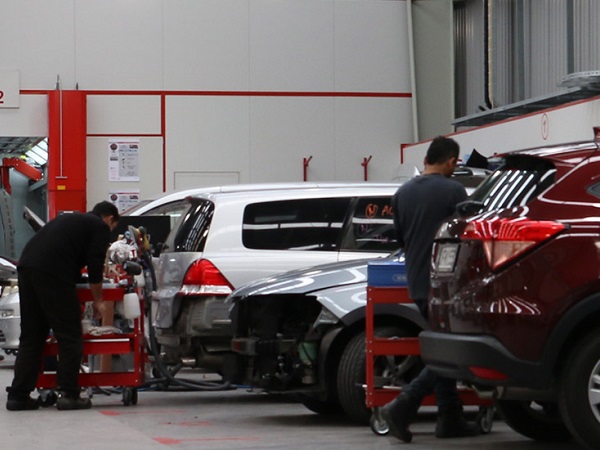Severe rain and weather: If you are a Vero customer and need to claim, fill out our online claims form Claims | Vero or contact your broker.
Vero Voice Blog
Bridging the gap between the future of mobility and today’s car insurance market
4 May 2018
Right now, we’re on the cusp of a major shift in the way humans get about.
Even insurance companies are making the shift from talking about ‘car insurance’ to talking about ‘mobility ecosystems’, and planning for a future where our transport options and the way we purchase them will look very different.
But what sometimes goes unnoticed is that the vehicles we drive have already changed dramatically in the last 30 years, and the impact that is having on today’s car insurance market.
The hidden shift in our cars
Right now insurers and consumers are sitting on the tipping point between the current and future states of mobility industry, and the changes of the last two decades have created a new dynamic that insurers need to respond to.
“The most epic change in cars is how much technology there is everywhere.”
The rise of new technology has made us more comfortable in our cars, but it has also connected more parts of our vehicles to each other and made even minor damage more complicated and expensive to fix. Small scrapes and collisions can now mean re-calibrating sensors, re-connecting wires, re-tuning vehicle computers and re-fitting airbags.
Vehicle technology like reversing cameras and proximity alarms are designed to keep us safer, but they aren’t enough to combat the rising number of vehicles on New Zealand’s roads.
Our customers are also taking advantage of digital platforms that allow them to turn their vehicle into an income-generating asset, renting out either their car or their services as a driver.
All these things are affecting the traditional structure of insurance policies, and increasing the cost of claims.
The future of mobility - ACES
“Given the widespread understanding that game-changing disruption is already on the horizon, there is still no integrated perspective on how the industry will look in 10 to 15 years as a result of these trends.”
The possible future of our transport options can be summed up in four letters: ACES – Automation, Connectivity, Electrification and Sharing.
Vehicle manufacturers and software companies are in a race to produce the first, safest and most viable fully autonomous cars, while other businesses develop and advance vehicle battery technology, wireless induction charging, ride-sharing platforms and more.
The future of cars, vehicle ownership and vehicle insurance are all likely to look very different, and the changes will affect customers and businesses from a wide range of industries, from insurance to healthcare, taxis to petrol stations.
Rising costs accelerating the future
For now, we continue to battle the rising costs of motor vehicle ownership. Our cars may be more comfortable, but the cost of fuel, taxes and the growing frequency and cost of car insurance claims are all adding to the expense of running a car.
Insurers like Vero are seeking ways to bridge the gap between insurance products that have hardly changed in a century, and the technological advances of today and the future.
We need to adapt our products, both to help control premiums, and to find new ways to protect a different style of vehicle ownership or participants in the sharing economy.
And more importantly, we need to have one eye on the coming future of the mobility industry.
One thing is for certain – rising costs are likely to accelerate our customers’ appetite for change.
The information in this article has been compiled from various sources and is intended to be factual information only. Full details of policy terms and conditions are available from Vero Insurance New Zealand Limited or your financial adviser. For advice on product suitability, please contact your financial adviser. While we take reasonable steps to ensure that the information contained in this article is accurate and up-to-date, it is subject to change without notice. Vero Insurance New Zealand and its related companies does/do not accept any responsibility or liability in connection with your use of or reliance on this article.



